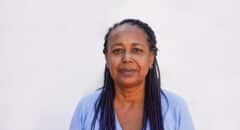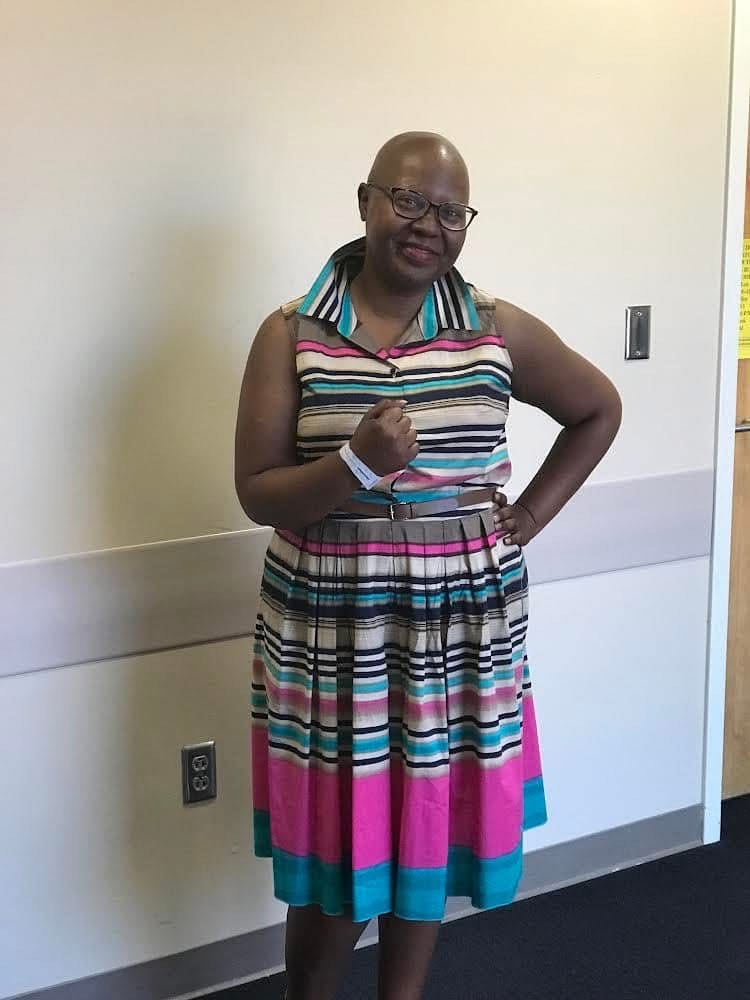
According to a new American Cancer Society report, there is a concerning trend on the rise: breast cancer rates are rising in women under 50. Cheryl can relate to this alarming trend.
When Cheryl was first diagnosed with breast cancer, she never imagined how drastically her life would change. As a mother of three young children and a dedicated physician, she initially dismissed her symptoms as a possible infection. However, after further evaluation, she learned that she had inflammatory carcinoma—a rare and aggressive form of breast cancer.
The shock of the diagnosis was overwhelming, but nothing prepared her for what came next: a metastatic triple-negative breast cancer (TNBC) diagnosis. Suddenly, she found herself not just as a doctor treating patients but as a patient navigating a life-altering disease.
“I truly didn’t expect it. From a medical perspective, I thought, I’m one of those people who has gone from having early-stage breast cancer to now being diagnosed with stage 4. That realization was just as shocking,” Cheryl tells BlackDoctor.org “However, through this journey, I’ve found support in unexpected places.”
RELATED: 5 Questions Every Black Woman Should Ask After an Advanced Breast Cancer Diagnosis
Parenting Through Cancer Treatment
As Cheryl underwent treatment, she faced the unique challenge of balancing motherhood with the physical and emotional toll of chemotherapy, surgeries, and doctor visits.
“For me, the biggest challenge was fatigue. It was hard to tell whether the exhaustion was from having three young kids and being in the postpartum period or from the medications. Honestly, I think it was a combination of both. Managing my energy while trying to care for my kids and going through treatments that would drastically change my life was incredibly difficult,” Cheryl says.
Luckily, she had a strong support system, including her husband, friends, and medical colleagues, who stepped in to help.
“I was fortunate to receive support that went beyond what many others might have access to. For example, a Black physician, whom I know personally, was able to come to my home and help me understand the journey ahead,” Cheryl shares.
However, one of the most difficult aspects was explaining her diagnosis to her children.
RELATED: How I Turned My Breast Cancer Diagnosis into a Mission for Change
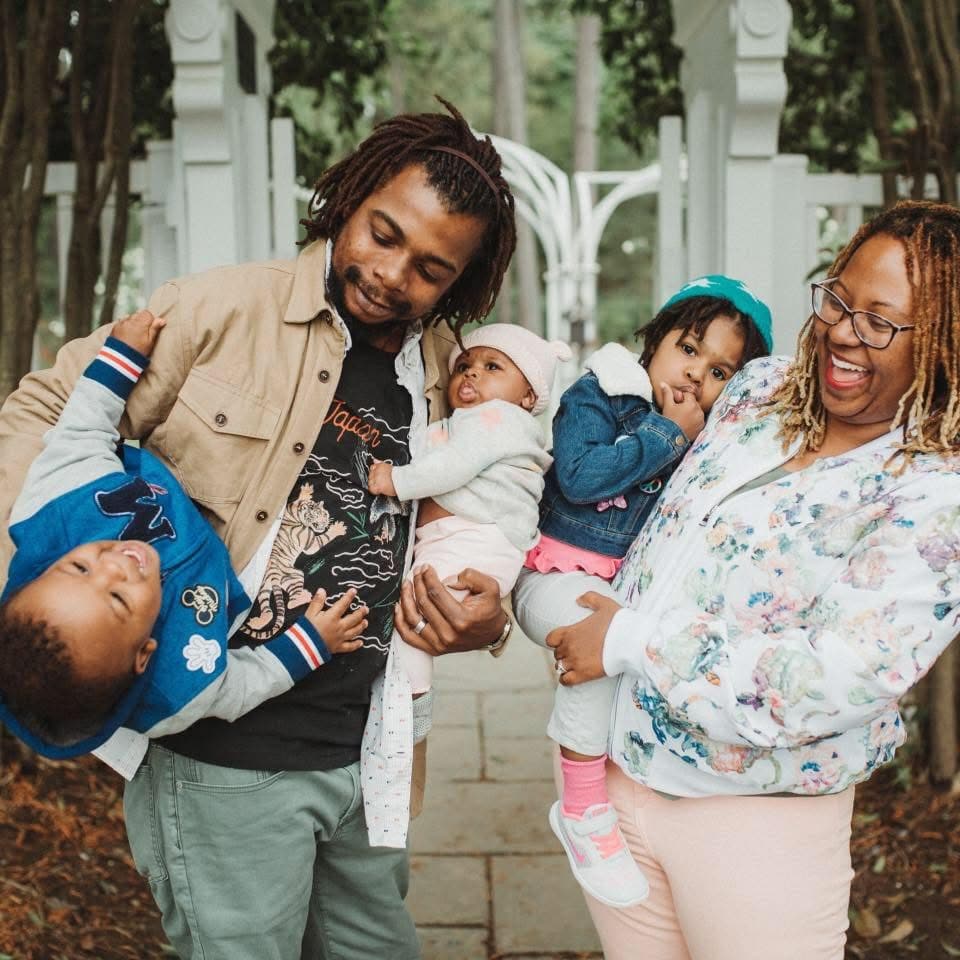
Navigating Conversations with Her Children
Discussing a life-threatening illness with young children is never easy, and Cheryl quickly realized that each of her kids processed information differently.
“For example, my son, who is the middle child, tends to process information more directly, whereas my older daughter and younger daughter need a gentler, softer approach. So, our conversations had to be more matter-of-fact with him, while with my daughters, I had to be more nurturing in my delivery. Understanding their individual personalities and communication styles was crucial, but it wasn’t always easy to navigate, and I certainly didn’t always get it right,” Cheryl adds.
She offers advice to parents in similar situations: “Meet your children where they are. Understand their communication styles and reassure them in a way they can process.”
RELATED: 5 Things To Expect After A Breast Cancer Diagnosis
Finding Strength in Advocacy
Initially, Cheryl was hesitant to speak publicly about her diagnosis, especially when it was still in the earlier stages. However, as her journey progressed, she recognized the power of sharing her story.
“Opening up about my stage 4 diagnosis, sharing my story publicly, and connecting with others in online groups led me to a strong network of other Black women physicians who have been through similar experiences. They helped me realize that it’s okay to accept support, and that I didn’t have to go through this alone,” Cheryl shares.
Through online support groups, she was able to go from supporting others to receiving the support she needed.
“As physicians, we are often so focused on helping others that we don’t always think about the help we need for ourselves. It took time, but I finally reached a point where I could acknowledge my own struggles and allow people to support me. In doing so, I was also introduced to new opportunities to meet others going through the same thing,” Cheryl notes.
Her advocacy work also led her to collaborate with Gilead Sciences and Living Beyond Breast Cancer, two organizations dedicated to supporting patients with breast cancer.
Through her advocacy work, she is passionate about dispelling the myth that a metastatic breast cancer diagnosis is an immediate death sentence.
“Many people assume that it’s something you can’t navigate or manage. But the reality is that, while it is a serious condition, there are people like me who are living with it and thriving,” Cheryl says. “That’s something I’ve worked to dispel through my advocacy. I feel blessed to be in a position where I can challenge these misconceptions and show that there is life after this diagnosis. I’ve been fortunate to survive and thrive, and I want others to know that hope exists.”
RELATED: From Diagnosis to Recovery: The Breast Cancer Survival Guide You NEED!
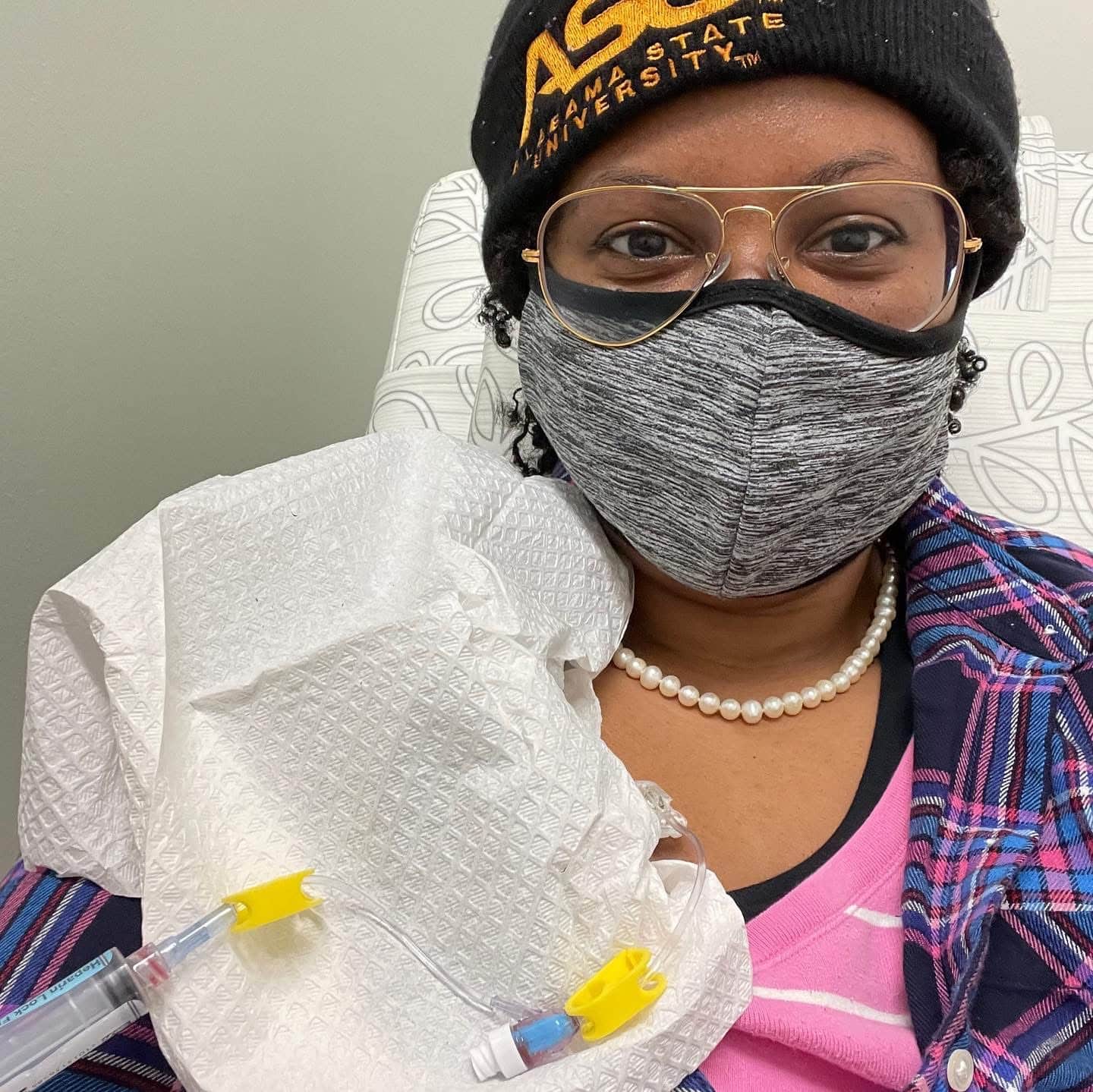
The Adventure Jar: A Book of Hope
One of Cheryl’s proudest contributions is “The Adventure Jar”, a collaborative book project created by metastatic breast cancer patients in partnership with Gilead Sciences.
The book serves as a resource for families navigating a cancer diagnosis, highlighting the importance of adventure, resilience, and community support.
“The Adventure Jar is a project that I’m incredibly proud to be involved with. This children’s book is a collaboration between Gilead Sciences and a group of metastatic breast cancer patients, which I think is so wonderful. Eight women, including myself, came together to share our insights and experiences about what’s important when navigating life with metastatic breast cancer,” Cheryl says.
Another key aspect of this book is that the collaboration also included a psychiatrist.
“This was important to ensure that the book not only captures the sense of adventure and excitement for children but also acknowledges the emotional realities of living with this illness. There are times when we may feel exhausted or face challenges that make it difficult to be as energetic as we’d like,” Cheryl notes.
Most importantly, the book highlights the resilient spirit that Cheryl exudes.
“The Adventure Jar serves as a reminder that, despite the challenges, we can continue to live fully and embrace each day,” Cheryl adds.
The book is available for free, both as a digital download and in a physical copy. Readers can access it here.
Mental Health and Self-Care in Cancer Recovery
For Cheryl, maintaining her mental health became just as critical as managing her physical health.
“For me, it was essential to eventually speak with a specialist about my own mental health concerns. But that wasn’t easy at first. I definitely feel that, as a Black community, we don’t always want to dig into those parts of our healing. Sometimes, we’re taught to push through and not acknowledge our struggles,” Cheryl says.
She encourages other cancer patients to be proactive about therapy, support groups, and self-care. For her, healing came in many forms—therapy, setting boundaries, and allowing herself to rest without guilt.
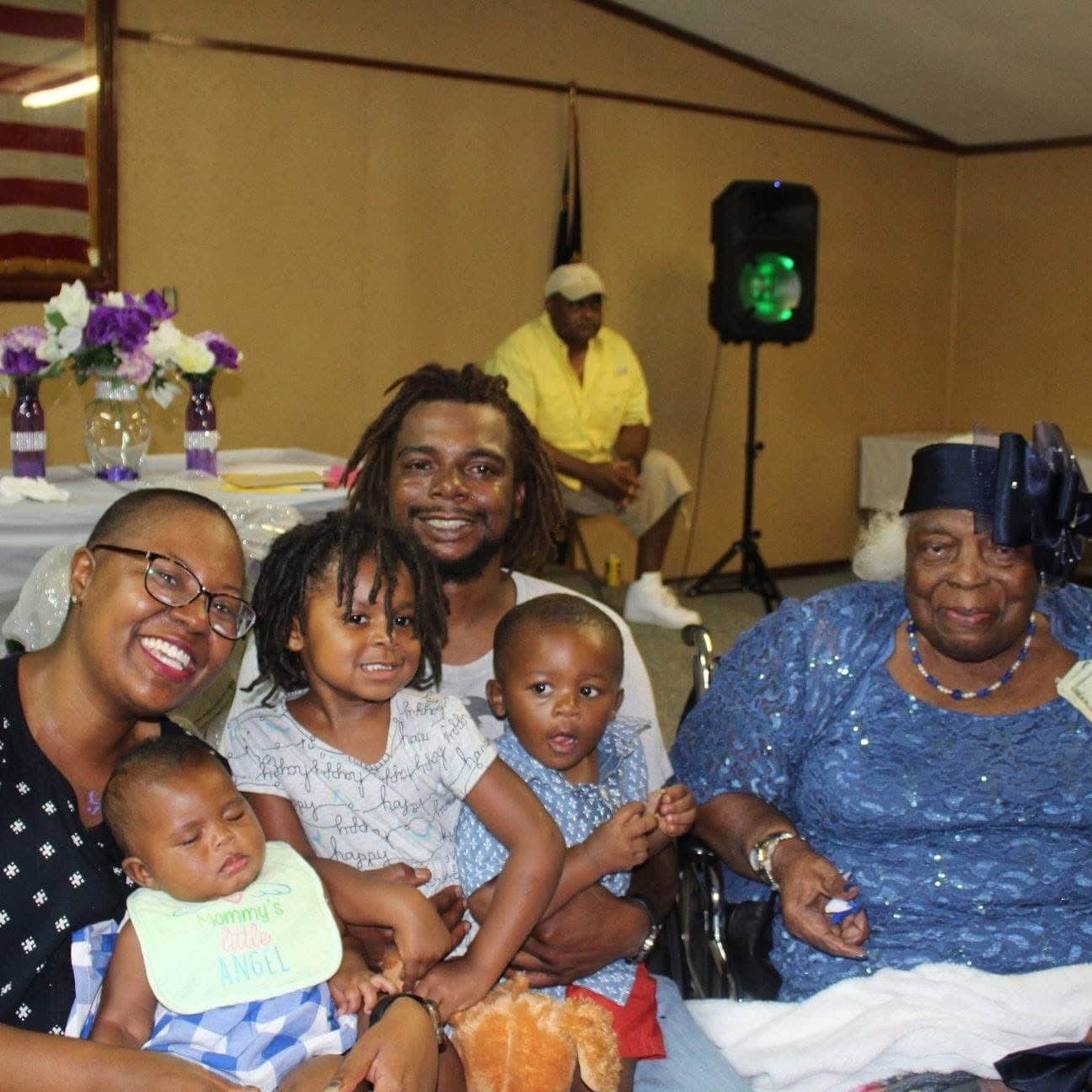
Living with No Evidence of Disease (NED)
Today, Cheryl is blessed to have no evidence of disease (NED)—a milestone that many metastatic breast cancer patients hope to reach. She remains aware that continued treatment, monitoring, and self-care are essential.
“Living with no evidence of disease is a delicate balance. On one hand, it’s the best possible outcome I can have right now, but on the other hand, I know many others who are not as fortunate. I carry both gratitude and concern—not just for myself and my future but also for my friends and loved ones who are facing more difficult diagnoses,” Cheryl notes.
Her perspective has shifted from working tirelessly as a physician to truly appreciating everyday joys—spending time with her children, pursuing creative projects, and advocating for other women facing metastatic breast cancer.
“Of course, the ultimate goal is to find a cure, but for now, having no evidence of disease is something I am incredibly grateful for,” Cheryl adds. “However, that doesn’t take away from the reality of my situation. I still have stage 4 metastatic breast cancer, and that’s something I’m reminded of every day—whether it’s through my ongoing treatments or simply when I think about my children and how my illness affects my family. It has deepened my appreciation for each and every day.”
A Message for Other Black Women Facing TNBC
Cheryl’s experience as both a physician and a patient has given her unique insights into the healthcare system. For Black women facing a TNBC diagnosis, she emphasizes the importance of self-advocacy and balance.
“One of the things I’ve learned to do is say no when necessary—and yes when necessary. I’ve also realized that before my diagnosis, when I was still practicing medicine, I didn’t have a good balance. I was so focused on my responsibilities and worried about taking care of others that I wasn’t prioritizing my own well-being. I wasn’t thinking about the fact that I needed to take care of myself, to slow down, and to make time for my own health,” Cheryl notes.
One way she encourages Black women to make time for their own health is by making healthier choices and enjoying the simple things.
“I drink more water—well, not just try, I actually do it now! And I also take time to enjoy the adventures we talked about in our book. I make a point to go outside, feel the sun on my skin, look up at the sky, and appreciate the little things in life that I didn’t necessarily take the time to appreciate before,” Cheryl adds.
“I think this is an important goal for many of us living with metastatic breast cancer—to truly find an appreciation for life and embrace ways to heal, both physically and mentally. Adjusting the way we navigate life, focusing on our well-being, and prioritizing mental health are all essential parts of the journey,” Cheryl says.
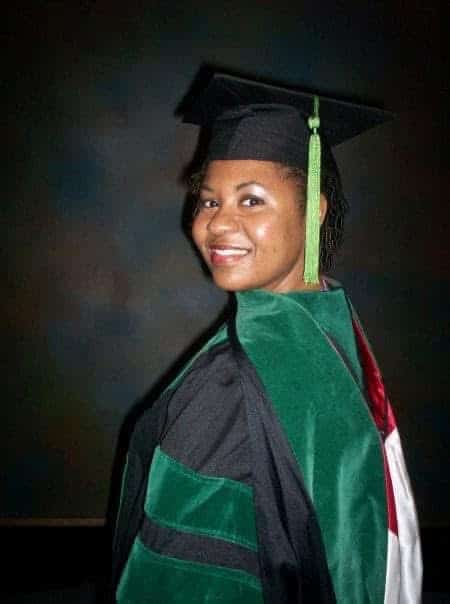
Looking Ahead: Hope for the Future
Cheryl remains committed to her advocacy work, continuing to educate and empower others. She hopes to see more research and resources dedicated to Black women with metastatic breast cancer.
“I’m grateful that they see there is still value in my voice and that I still have the ability to empower others. For my future, I want to continue advocating, finding joy, and strengthening the connections I’ve built. My hope is that these connections will not only support the metastatic breast cancer community but also inspire people to share their own stories and build more supportive networks,” she concludes.
For more information about The Adventure Jar, visit expose-mbc.com/adventurejar to get a free copy of the book.




